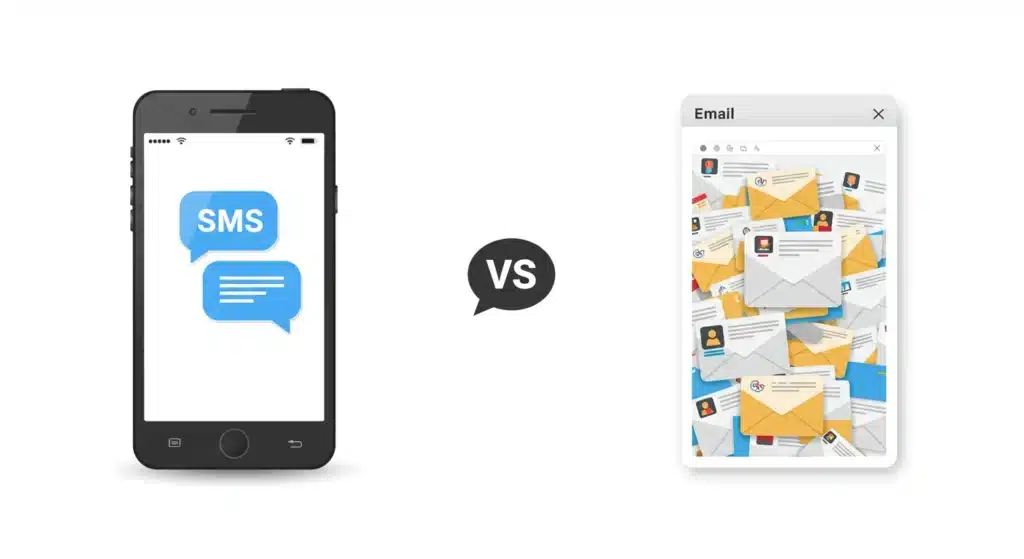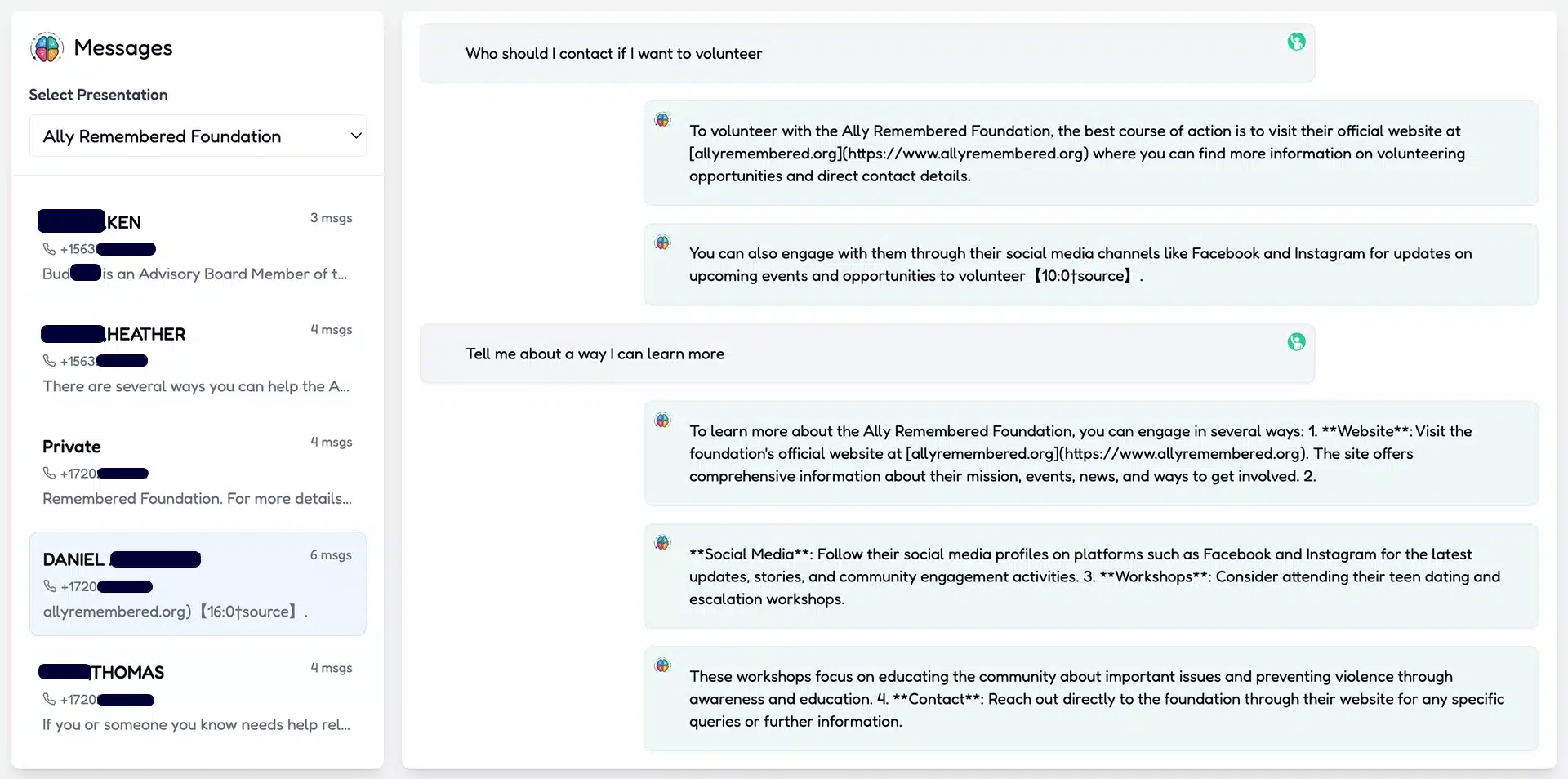The Future is Conversational: Why SMS Reigns Supreme in Modern Marketing

In today’s hyper-connected world, where consumers expect instant gratification and personalized experiences, the traditional one-way marketing model is rapidly becoming obsolete. Businesses are realizing the imperative of fostering genuine, two-way dialogues with their customers, paving the way for the rise of conversational marketing. This approach, built on the foundation of real-time interactions, has become a cornerstone of modern customer engagement. Among the plethora of channels available, SMS (Short Message Service) marketing stands out as a particularly potent tool, poised to lead the charge in the future of conversational marketing.
Understanding the Paradigm Shift: Conversational Marketing Defined
Conversational marketing marks a significant departure from traditional marketing’s monologue. It’s about engaging customers in authentic, personalized conversations, fostering deeper relationships, and creating a more human-centric brand experience. Unlike broadcast-style advertising, conversational marketing prioritizes immediate feedback, personalized interactions, and a seamless flow of information. This dynamic approach transforms passive recipients into active participants, enhancing customer satisfaction and loyalty.

SMS: The Uncrowned King of Conversational Marketing
While various platforms contribute to conversational marketing, SMS has emerged as a particularly powerful and effective channel. Several compelling factors underscore its dominance:
Unmatched Open and Response Rates:
- Astonishing Open Rates: In a world saturated with digital noise, SMS boasts an unparalleled open rate of approximately 98%. This figure dwarfs the average 20-30% open rate for emails, ensuring that your message is seen.

- Rapid Response Times: The immediacy of SMS is undeniable. A staggering 90% of SMS messages are opened within three minutes of receipt. This speed allows for real-time engagement and prompt responses, crucial for time-sensitive communications.

Consumer Preference and Engagement:
- Preferred Communication Channel: Consumers overwhelmingly prefer SMS for communication. A significant 90% of individuals express a preference for receiving text messages over phone calls or emails. This preference stems from the convenience, speed, and non-intrusive nature of SMS.
- High Engagement Levels: SMS campaigns consistently achieve response rates of around 45%, significantly higher than the typical 6% response rate for email campaigns. This high engagement demonstrates the effectiveness of SMS in driving customer interaction.
The Power of AI-Driven Personalization:
- Enhanced Personalization: The integration of Artificial Intelligence (AI) into SMS marketing has revolutionized personalization. AI algorithms can analyze customer data, preferences, and past interactions to deliver highly targeted and relevant messages.

- Automated Responses and Support: AI-powered chatbots can automate responses to frequently asked questions, provide instant support, and guide customers through various processes. This automation enhances efficiency and ensures consistent customer service.
- Data-Driven Optimization: AI enables businesses to analyze customer interactions, identify patterns, and refine their SMS marketing strategies for optimal performance.

Strategic Implementation: Leveraging SMS in Conversational Marketing
To fully capitalize on the potential of SMS in conversational marketing, businesses must adopt a strategic approach:
Lead Generation and Customer Engagement:
- Exclusive Offers and Promotions: Offering exclusive discounts, promotions, or early access to sales via SMS can incentivize opt-ins and drive customer acquisition.
- Interactive Surveys and Polls: Conducting quick surveys or polls through SMS allows businesses to gather valuable customer feedback and foster engagement.
- AI-Powered Chatbots for Lead Qualification: AI chatbots can be deployed to qualify leads, answer preliminary questions, and guide potential customers through the sales funnel.
Automated Customer Support and Service:
- Instant Order Confirmations and Updates: Sending immediate order confirmations, shipping updates, and delivery notifications via SMS keeps customers informed and enhances their post-purchase experience.
- Appointment Reminders and Scheduling: Automating appointment reminders and scheduling through SMS reduces no-show rates and improves customer convenience.
- Automated FAQ Assistance and Troubleshooting: Implementing automated responses to frequently asked questions and providing troubleshooting assistance through SMS ensures prompt and efficient customer support.
Personalized Marketing Campaigns and Loyalty Programs:
- Tailored Product Recommendations: Leveraging customer data to send personalized product recommendations via SMS increases the likelihood of conversions and drives sales.
- Abandoned Cart Reminders: Sending friendly reminders about items left in shopping carts can prompt customers to complete their purchases.
- Loyalty Program Updates and Exclusive Offers: Informing customers about loyalty rewards, exclusive events, and special offers through SMS fosters repeat business and enhances customer loyalty.

Best Practices for Maximizing SMS Conversational Marketing:
To ensure the success of SMS conversational marketing initiatives, businesses should adhere to the following best practices:
- Obtain Explicit Consent: Always obtain explicit opt-in from customers before sending SMS messages to comply with regulations and build trust.
- Maintain Relevance and Personalization: Tailor messages to align with the recipient’s interests, preferences, and past interactions to enhance engagement.
- Optimize Timing and Frequency: Schedule messages at appropriate times to avoid inconveniencing recipients and to increase the likelihood of prompt responses.
- Include Clear and Compelling Calls-to-Action: Provide concise and actionable calls-to-action to guide customers toward the desired outcome.
- Monitor and Analyze Campaign Performance: Regularly track and analyze campaign metrics to identify areas for improvement and refine strategies accordingly.
- Provide Opt-out options: Ensure that recipients can easily opt out of recieving text messages.

The Future of Conversational Marketing is SMS-Driven
As businesses navigate the complexities of the modern digital landscape, conversational marketing has emerged as a critical strategy for building meaningful customer relationships. SMS, with its unparalleled open and response rates, widespread consumer preference, and the power of AI-driven personalization, stands at the forefront of this revolution. By embracing SMS, businesses can foster genuine dialogues, drive engagement, and achieve greater success in their marketing endeavors. The future of customer interaction is conversational, and SMS is undeniably leading the charge.

